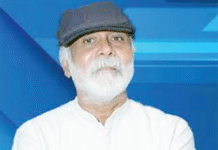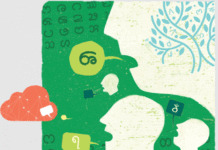Will people hate me if I say that I now hate Dhaka though I fell in love with it in my childhood?
Every day, when I am traveling on a bus or walking the streets of Dhaka, I battle with myself about whether I should continue following the teachings of my parents and teachers.
From my childhood, I was taught to love my motherland. And I remember the poem of Jibanananda Das that I read in school: “Abar ashibo phiire dhanshiritir tire ei Banglai, hoito manush noi, hoitoba shongkho chil shaliker beshe …”
Till today, I have been following this teaching. I love my motherland and I will continue to do so.
But one question had come to my mind recently: Will it be against everything I have been taught to hate my own city? Is it a sin to hate Dhaka, where I was born?
I encounter this question every moment I am in the city. Should I continue to pretend I love Dhaka when I actually don’t? Will people hate me if I say that I now hate Dhaka though I fell in love with it in my childhood? These are the questions I face every day.
Dhaka changed very rapidly. I have witnessed how a loving city can turn into a loathing city. Recently, I discovered that one should have four eyes to cross the roads in Dhaka as vehicles come from both sides. Two eyes are required to carefully watch one side, and another pair for the other side.
I discovered that footpaths are made for motorbikes and not for walking. The other day, I asked a motorbike owner who was driving on the footpath if the footpath was made for riding motorbikes. He answered: “When law enforcers don’t say anything, why should you be bothered? It is not your duty to look after footpaths.”
Yes, it is not my duty. But whose duty is it?
Sometimes I think it is the duty of hawkers as they occupy the footpaths as if it were their property. It seems that footpaths were built for hawkers. And Dhaka’s transportation system is even worse than its footpaths.
When I am in a public bus, I feel like I am not a human being. I am sure even cows or goats have a better journey when they come to Dhaka. The conductors of the city’s bus services always seem to follow a policy – to fill every inch of space in the bus. And sometimes, even the roofs of buses are not spared.
I find many passengers who think some city buses are (in a way) like prison vans. And they are not wrong. In some busses, you hardly get any ventilation.
And what if a passenger experiences a sudden cardiac arrest inside a bus? I am sure he or she will not survive as it is not possible to get out of a crowded bus.
And if you share your objections with the conductor, his answer will surely be: “Buy a car, otherwise you have to face this.” As if a person who cannot afford to buy a car has no right to live in this city.
But even if you have a car, you are not free of problems in this city. The first problem everyone faces is lack of cleanliness. You will hardly find any place in the city without a bad smell, and if you are unlucky enough, you will find some open dustbins in important parts of the city.
The whole city is a public toilet. The smell of urine is overwhelming in every bus stop. In many places, waste is dumped on the busy roads.
Our city corporation is responsible for looking after the city, but ironically the surroundings of the city corporation offices are the dirtiest. Just go to Gulistan, which is just a few yards of Dhaka South City Corporation, and if you do not vomit, you should test whether your nose is working properly.
All these problems only get worse during the rainy season.
There are many poems in Bangla literature about the rainy season. A rainy day is always an enjoyable event for Bangalis. But for city-dwellers, this is the worst season. In many parts of the city, roads are inundated for days after a rainy day. Throughout the season, most roads are in such a bad condition that it is really difficult to walk or drive vehicles.
And then there is traffic congestion. I came across a cartoon the other day and thought it was the best thing to explain our city’s traffic problems. A person seeks three days’ leave from his boss. The boss asks him whether he is going anywhere and the person answers: “Yes, I am going to my in-laws’ house in Uttara. One day is required to go from my house in Jatrabari to Uttara, and another to return. And I will stay there for one day.” Very soon we will need one whole day to go from one part of the city to another.
These are only a few of the many problems in Dhaka. I am in a dilemma – is it possible to love a city with all these problems? Or should I admit that I am no longer in love with it?
Source: Dhaka Tribune










